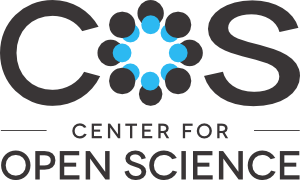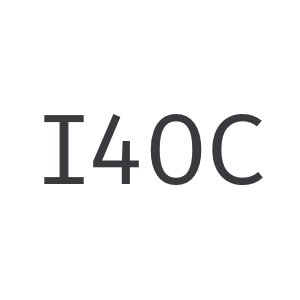Logika narodu: Nacjonalizm, logika formalna i międzywojenna Polska
DOI:
https://doi.org/10.4467/2543702XSHS.18.009.9329Słowa kluczowe:
logika matematyczna, polska logika, Jan Łukasiewicz, Warszawska Szkoła Logiki, notacja polska, odwrotna notacja polska, internacjonalizm olimpijski, nacjonalizm, nauka międzywojennaAbstrakt
W okresie międzywojennym w rodzącej się dyscyplinie logiki matematycznej w Warszawie wyłoniła się silna społeczność badawcza. Logika w Warszawie wyrosła w wyniku nakładających się na siebie imperialnych spuścizn, dzięki działaniom głównie polskojęzycznych uczonych, którzy kształcili się na uniwersytetach habsburskich i przybyli w czasie I wojny światowej na Uniwersytet Warszawski, instytucję kontrolowaną do niedawna przez Rosję i zrekonstruowaną jako polską pod auspicjami niemieckiego okupanta. Intelektualiści, którzy tworzyli Warszawską Szkołę Logiki, przyjęli patriotyczną polską tożsamość. Konkurencyjne postawy nacjonalistyczne były powszechne wśród naukowców międzywojennych – stanowisko, które historycy nazwali „internacjonalizmem olimpijskim”, w którym nacjonalizm i internacjonalizm oddziaływały jako impulsy raczej wzajemnie się uzupełniające niż sprzeczne.
Jeden z liderów Szkoły, Jan Łukasiewicz, opracował system notacji, który promował jako uniwersalne narzędzie do badań i komunikacji w logice. Wielu jego rodaków przyjęło ten system notacji, ale niewielu logików poza Polską. W ten sposób notacja Łukasiewicza nieumyślnie posłużyła jemu i jego współpracownikom jako narzędzie specyficznie polskie. Wynalazek, który w zamyśle miał być najbardziej uniwersalną formą zapisu, stał się szanowanym, lecz zrozumiałym tylko w kraju narzędziem. System notacji Łukasiewicza później rozprzestrzenił się w nieprzewidzianej formie, gdy powojenni informatycy zdali sobie sprawę z praktycznej użyteczności jego aspektów do pracy w specyficznych uwarunkowaniach maszynowych i opracowali zmodyfikowaną wersję tej notacji do programowania o nazwie „Reverse Polish Notation” (RPN). RPN osiągnął miarę waluty międzynarodowej, której nigdy nie miała polska notacja w logice, ciesząc się globalną karierą w innej dyscyplinie poza krajem jej imiennika. Drogi, w jakich wersje tej notacji rozprzestrzeniły się i pozostały lub nie pozostały „polskie” podczas tej podróży, zależały od tego, jak czytelnicy (zajmujący się logiką matematyczną albo informatyką) postanowili czytać tę notację; tworzenie znacjonalizowanej nauki było nierozerwalnie związane z jej międzynarodową recepcją.
Bibliografia
ARCHIVAL SOURCES
Archive of The University of Warsaw. Jan Łukasiewicz Papers.
Bancroft Library, University of California. Alfred Tarski Papers. BANC MSS 84/69 c.
Manuscripts Department, Library of The University of Warsaw. Historical-Political Materials from the Period of the First World War. Manuscripts 1744–1778.
STUDIES
Ajdukiewicz, Kazimierz 1935: Der logistische Antiirrationalismus in Polen. Erkenntnis 5, pp. 151–161.
Applegate, Celia 1990: A Nation of Provincials: The German Idea of Heimat. Berkeley: University of California Press.
Beaney, Michael (ed.) 2013: The Oxford Handbook of the History of Analytic Philosophy. Oxford: Oxford University Press.
Bensaude-Vincent, Bernadette; Abbri, Ferdinando (eds.) 1995: Lavoisier in European Context: Negotiating a New Language for Chemistry. Canton, MA: Science History Publications.
Blobaum, Robert 2017: A Minor Apocalypse: Warsaw during the First World War. Ithaca: Cornell University Press.
Bocheński, I. M. 1948: Précis de logique mathématique. Bussum: F. G. Kroonder.
Bocheński, I. M. 1961: A History of Formal Logic. Trans. Ivo Thomas. Notre Dame, Indiana: University of Notre Dame Press.
Brentano, Franz 1968: Die Habilitationsthesen. [In:] Über die Zukunft der Philosophie. By Franz Brentano, edited by Oskar Kraus. 2nd edition. Hamburg: Felix Meiner. pp. 133–141.
Brown, Kate 2004: A Biography of No Place: From Ethnic Borderland to Soviet Heartland. Cambridge, MA: Harvard University Press.
Brożek, Anna; Stadler, Friedrich; Woleński, Jan (eds.) 2017: The Significance of the Lvov-Warsaw School in the European Culture. Cham, Switzerland: Springer.
Burks, Arthur W.; Warren, Don W.; Wright, Jesse 1952: Truth-function Evaluation Using the Polish Notation. Engineering Research Institute, University of Michigan, Burroughs Adding Machine Co. Project M828.
Conze, Werner 1958: Polnische Nation und deutsche Politik im ersten Weltkrieg. Köln: Böhlau Verlag.
Church, Alonzo 1936: A Bibliography of Symbolic Logic. The Journal of Symbolic Logic 1(4), pp. 121–218.
Carnap, Rudolf, 1963: Intellectual Autobiography. [In:] The Philosophy of Rudolf Carnap. Edited by Paul Arthur Schilpp. La Salle, IL: Open Court. pp. 1–84.
Ciancia, Kathryn 2017: Borderland Modernity: Poles, Jews, and Urban Spaces in Interwar Eastern Poland. The Journal of Modern History 89(3), pp. 531–61.
Connelly, John 2000: Captive University: The Sovietization of East German, Czech, and Polish Higher Education, 1945–1956. Chapel Hill: The University of North Carolina Press.
Davis, G. M. 1960: The English Electric KDF 9 Computer System. The Computer Bulletin 4(3), pp. 119–120.
Davis, Martin 2000: The Universal Computer: The Road from Leibniz to Turing. New York: W. W. Norton & Company.
Dąmbska, Izydora 1978: François Brentano et la Pensée philosophique en Pologne: Casimir Twardowski et son École. Grazer philosophische Studien 5, pp. 117–129.
Dick, Stephanie 2015: Of Models and Machines: Implementing Bounded Rationality. Isis 106(3), pp. 623–634.
Duhem, Pierre 1954: The Aim and Structure of Physical Theory. Trans. Philip P. Wiener. Princeton: Princeton University Press.
Faris, John Acheson 2013: Jan Łukasiewicz w Irlandii – kilka wspomnień (marzec 1996) [Jan Łukasiewicz in Ireland – A Few Recollections (March 1996)]. [In:] Łukasiewicz 2013, pp. 100–102.
Feferman, Anita Burdman; Feferman, Solomon 2004: Alfred Tarski: Life and Logic. Cambridge: Cambridge University Press.
Forman, Paul 1973: Scientific Internationalism and the Weimar Physicists: The Ideology and Its Manipulation in Germany after World War I. Isis 64(2), pp. 151–180.
Fox, Robert 2016: Science without Frontiers: Cosmopolitanism and National Interests in the World of Learning, 1870–1940. Corvallis: Oregon State University Press.
Fox, Robert 2017: The dream that never dies: the ideals and realities of cosmopolitanism in science, 1870–1940. Studia Historiae Scientiarum 16, pp. 29–47. DOI: 10.4467/2543702XSHS.17.004.7705. Available online: http://www.ejournals.eu/sj/index.php/SHS/article/view/SHS.17.004.7705/6769.
Fox, Robert; Kokowski, Michał 2017: Historiography of Science and Technology in Focus. A Discussion with Professor Robert Fox. Studia Historiae Scientiarum 16, pp. 69–119. DOI: 10.4467/2543702XSHS.17.006.7707. Available online: http://www.ejournals.eu/sj/index.php/SHS/article/download/6836/6771.
Gordin, Michael D. 2015: Scientific Babel: How Science Was Done Before and After Global English. Chicago: Chicago University Press.
Gabbay, Dov M.; Woods, John (eds.) 2002: Handbook of the History of Logic. 11 volumes.
Amsterdam: Elsevier, 2004.
Goth, Greg 2002: Fans of Hewlett-Packard Calculators Say ‘It All Adds Up.’ Computing in Science & Engineering 4(2), pp. 5–8.
Grattan-Guinness, I. 2000: The Search for Mathematical Roots, 1870–1940: Logics, Set Theories and the Foundations of Mathematics from Cantor through Russell to Gödel. Princeton: Princeton University Press.
Garlicki, Andrzej (ed.) 1982: Dzieje Uniwersytetu Warszawskiego 1915–1939 [The History of the University of Warsaw 1915–1939]. Warsaw: Państwowe Wydawnictwo Naukowe.
Gerwarth, Robert 2016: The Vanquished: Why the First World War Failed to End. New York: Farrar, Straus and Giroux.
Hamblin, C. L. 1957: An Addressless Coding Scheme Based on Mathematical Notation. [In:] Data Processing and Automatic Computing Machines: Proceedings of a Conference (on Data Processing and Automatic Computing Machines) Held at Weapons Research Establishment, Salisbury, S.A., June 3rd–8th, 1957. Salisbury, South Australia: Weapons Research Establishment, pp. 121.1–121.12. Available online: http://www.massey.ac.nz/~rmclachl/DPACM/121%20-%20addressless%20coding%20scheme.pdf.
Harwood, Jonathan 1987: National Styles in Science: Genetics in Germany and the United States between the World Wars. Isis 78(3), pp. 390–414.
Isaac, Joel 2005: W. V. Quine and the Origins of Analytic Philosophy in the United States. Modern Intellectual History 2(2), pp. 205–234.
Jacquette, Dale (ed.) 2004: The Cambridge Companion to Brentano. Cambridge: Cambridge University Press.
Jadacki, Jacek 2015: Polish Philosophy of the 19th and 20th Centuries. Warsaw: Wydawnictwo Naukowe Semper.
Jakubisiak, Augustyn 1936: Od zakresu do treści [From Extension to Substance]. Warsaw: Droga.
Janiszewski, Zygmunt 1918: O potrzebach matematyki w Polsce [On the Needs of Mathematics in Poland]. Nauka polska, jej potrzeby, organizacja i rozwój 1, pp. 11–18.
Jones, Matthew L. 2016: Reckoning with Matter: Calculating Machines, Innovation, and Thinking about Thinking from Pascal to Babbage. Chicago: Chicago University Press.
Judson, Pieter M. 2013: Marking National Space on the Habsburg Austrian Borderlands, 1880–1918. [In:] Shatterzone of Empires: Coexistence and Violence in the German, Habsburg, Russian, and Ottoman Borderlands. Edited by Omer Bartov and Eric D. Weitz. Bloomington: Indiana University Press, pp. 122–135.
Kauffman, Jesse 2015: Elusive Alliance: The German Occupation of Poland in World War I. Cambridge, MA, USA: Harvard University Press.
Kneale, William; Kneale, Martha 1962: The Development of Logic. Oxford: Clarendon Press.
Kotarbiński, Tadeusz 1966: Garstka wspomnień o Stanisławie Leśniewskim [A Handful of Memories of Stanisław Leśniewski]. Ruch Filozoficzny 24(3–4), pp. 155–163.
Kotarbiński, Tadeusz 1990: Philosophical Self-Portrait. [In:] Kotarbiński: Logic, Semantics and Ontology. Edited by Jan Woleński. Dordrecht: Kluwer Academic Publishers, pp. 1–6.
Kuratowski, Kazimierz 1980: A Half Century of Polish Mathematics: Remembrances and Reflections. Oxford and New York: Pergamon Press.
Kuzawa, Mary Grace 1970: Fundamenta Mathematicae: An Examination of Its Founding and Significance. The American Mathematical Monthly 77(5), pp. 485–492.
Lavington, Simon 1980: Early British Computers: The Story of Vintage Computers and the People Who Built Them. Manchester: Manchester University Press.
Lavoisier, Antoine-Laurent 1965: Elements of Chemistry in a New Systematic Order, Containing All the Modern Discoveries. Trans. Robert Kerr. New York: Dover.
Leśniewski, Stanisław 1991: On the Foundations of Mathematics. Trans. D. I. Barnett. [In:] Stanisław Leśniewski, Collected Works. Edited by S. J. Surma, J. T. Srzednicki, D. I. Barnett, and V. F. Rickey. 2 volumes. Dordrecht: Kluwer Academic Publishers, vol. 1, pp. 174–382.
Leśniewski, Stanisław 2015: Autobiografia [Autobiography]. [In:] Stanisław Leśniewski, Pisma Zebrane [Collected Works]. Edited by Jacek Jadacki. 2 volumes. Warsaw: Wydawnictwo Naukowe Semper, vol. 2, pp. 779–780.
Liulevicius, Vejas Gabriel 2000: War Land on the Eastern Front: Culture, National Identity, and German Occupation in World War I. Cambridge: Cambridge University Press.
Łukasiewicz, Jan 1910: O zasadzie sprzeczności u Arystotelesa [On the principle of contradiction in Aristotle]. Cracow: Polska Akademia Umiejętności.
Łukasiewicz, Jan 1916: O pojęciu wielkości [On the Concept of Magnitude]. Przegląd Filozoficzny 19, pp. 1–70. [Abridged and trans. in:] Łukasiewicz 1970, trans. O. Wojtasiewicz, pp. 64–83.
Łukasiewicz, Jan 1918: Treść wykładu pożegnalnego wygłoszonego w auli Uniwersytetu Warszawskiego 7 marca 1918 [A Lecture Delivered in the Auditorium of the University of Warsaw on 7 March 1918]. Warszawa. [Trans in:] Łukasiewicz 1970, trans. O. Wojtasiewicz, pp. 84–86.
Łukasiewicz, Jan 1920a: O pojęciu możliwości [On the Concept of Possibility]. Ruch Filozoficzny 5, pp. 169–170. [Trans in:] McCall (ed.) 1967, trans. H. Hiż, pp. 15–16.
Łukasiewicz, Jan 1920b: O logice trójwartościowej [On Three-Valued Logic]. Ruch Filozoficzny 5, pp. 170–171. [Trans in:] McCall (ed.) 1967, trans. H. Hiż, pp. 16–18.
Łukasiewicz, Jan 1929: O znaczeniu i potrzebach logiki matematycznej [On the Significance and Needs of Mathematical Logic]. Nauka Polska 10, pp. 604–620.
Łukasiewicz, Jan 1931: Uwagi o aksyomacie Nicod’a i o ‘dedukcyi uogólniającej’ [Comments on Nicod’s Axiom and on ‘Generalizing Deduction’]. Księda pamiątkowa Polskiego Towarzystwa Filozoficznego. Lwów. [Reprinted in:] Łukasiewicz 1961, pp. 164–177. [Trans. in:] Łukasiewicz 1970, trans. O. Wojtasiewicz, pp. 179–196.
Lukasiewicz, Jan 1935: Zur Geschichte Der Aussagenlogik. Erkenntnis 5, pp. 111–131. [Trans in:] Łukasiewicz 1970, trans. S. McCall, pp. 197–217.
Łukasiewicz, Jan 1936: Logistyka i filozofia [Logistic and Philosophy]. Przegląd Filozoficzny 39, pp. 115–131. [Reprinted in:] Łukasiewicz 1961, pp. 195–209. [Trans. in:] Łukasiewicz 1970, trans. O. Wojtasiewicz, pp. 218–235.
Łukasiewicz, Jan 1951: Aristotle’s Syllogistic: From the Standpoint of Modern Formal Logic. Oxford: Clarendon Press.
Łukasiewicz, Jan 1961: Z zagadnień logiki i filozofii: Pisma wybrane [From the Problems of Logic and Philosophy: Selected Works]. Edited by Jerzy Słupecki. Warsaw: Państwowe Wydawnictwo Naukowe.
Łukasiewicz, Jan 1963: Elements of Mathematical Logic. Trans. Olgierd Wojtasiewicz. New York: MacMillan.
Łukasiewicz, Jan 1970: Selected Works. Edited by L. Borkowski. Amsterdam and London: North-Holland Publishing Company and Warsaw: PWN – Polish Scientific Publishers.
Łukasiewicz, Jan 2013: Pamiętnik [Memoirs]. Edited by Jacek Jadacki and Piotr Surma. Warsaw: Wydawnictwo Naukowe Semper.
Łukasiewicz, Jan; Tarski, Alfred 1930: Untersuchungen über den Aussagenkalkül. Sprawozdania z Posiedzeń Towarzystwa Naukowego Warszawskiego, Wydział III Nauk Matematyczno-fizycznych (Comptes Rendus des séances de la Société des Sciences et des lettres de Varsovie, Classe III, Sciences Mathématiques et Physiques) 23, pp. 30–50. [Trans. in :] Tarski 1983, pp. 38–59.
Mahoney, Michael S. 1988: The History of Computing in the History of Technology. Annals of the History of Computing 10(2), pp. 113–25.
McCall, Storrs (ed.) 1967: Polish Logic 1920–1939. Oxford, Clarendon Press.
Melzer, Emanuel 1997: No Way Out: The Politics of Polish Jewry, 1935-1939. Cincinnati: Hebrew Union College Press.
Menger, Karl 1994: Reminiscences of the Vienna Circle and the Mathematical Colloquium. Edited by Louise Golland, Brian McGuinness, and Abe Sklar. Dordrecht: Kluwer Academic Publishers.
Meredith, Carew A. 1953: Single Axioms for the Systems (C, N), (C, 0) and (A, N) of the Two-Valued Propositional Calculus. Journal of Computing Systems 1(3), pp. 155–170.
Mick, Christoph 2016: Lemberg, Lwów, L’viv, 1914–1947: Violence and Ethnicity in a Contested City. West Lafayette: Purdue University Press.
Miehle, William 1957: Burroughs Truth Function Evaluator. Journal of the ACM 4(2), pp. 189–192.
Murawski, Roman 2014: The Philosophy of Mathematics and Logic in the 1920s and 1930s in Poland. Trans. Maria Kantor. Basel: Birkhäuser.
Murawski, Roman 2015: Cracow Circle and Its Philosophy of Logic and Mathematics. Axiomathes 25(3), pp. 359–76.
[N.N.1] 1925/28: Jahrbuch über die Fortschritte der Mathematik 48 Jahrgang 1921–22.
Nagel, Ernest 1936a: Impressions and Appraisals of Analytic Philosophy in Europe I. The Journal of Philosophy 33(1), pp. 5–24.
Nagel, Ernest 1936b: Impressions and Appraisals of Analytic Philosophy in Europe II. The Journal of Philosophy 33(2) pp. 29–53.
Nowik, Grzegorz 2004: Zanim złamano “Enigmę”: Polski radiowywiad podczas wojny z bolszewicką Rosją 1918–1920 [Before Breaking “Enigma”: Polish Radio Intelligence during the War with Soviet Russia 1918–1920]. Warsaw: Rytm.
Plach, Eva 2006: The Clash of Moral Nations: Cultural Politics in Piłsudski’s Poland, 1926–1935. Athens, Ohio: Ohio University Press.
Polish Philosophy Page 2017: Documentation on Twardowski. Available online (1.10.2017): http://segr-did2.fmag.unict.it/~polphil/PolPhil/Tward/TwardDoc.html.
Polonsky, Antony 1972: Politics in Independent Poland 1921–1939: The Crisis of Constitutional Government. Oxford: Clarendon Press.
Porter, Brian 2000: When Nationalism Began to Hate: Imagining Modern Politics in Nineteenth-Century Poland. Oxford: Oxford University Press.
Porter, Brian 2005: Antisemitism and the Search for a Catholic Identity. [In:] Antisemitism and Its Opponents in Modern Poland. Edited by Robert Blobaum. Ithaca: Cornell University Press, pp. 103–123.
Porter-Szűcs, Brian 2014: Beyond Martyrdom: Poland in the Modern World. West Sussex: Wiley-Blackwell.
Priestley, Joseph 1796: Considerations on the Doctrine of Phlogiston, and the Decomposition of Water. Philadelphia: Thomas Dobson.
Priestley, Mark 2011: A Science of Operations: Machines, Logic and the Invention of Programming. London: Springer.
Prior, A. N. 1952a: Lukasiewicz’s Symbolic Logic. Australasian Journal of Philosophy 30(1), pp. 33–46.
Prior, A. N. 1952b: Methods of Logic by W. V. Quine. Australasian Journal of Philosophy 30(3), pp. 200–202.
Quine, W. V. 1985: The Time of My Life: An Autobiography. Cambridge and London: The MIT Press.
Reisch, George A. 2005: How the Cold War Transformed Philosophy of Science: To the Icy Slopes of Logic. Cambridge: Cambridge University Press.
Rickey, V. Frederick 2011: Polish Logic from Warsaw to Dublin: The Life and Work of Jan Łukasiewicz. Canadian Society for History and Philosophy of Mathematics Proceedings 24, pp. 93–109.
Schmidt Am Busch, Hans-Christoph; Wehmeier, Kai F. 2007: On the Relations between Heinrich Scholz and Jan Łukasiewicz. History and Philosophy of Logic 28(1), pp. 67–81.
Simons, Peter 2017: Łukasiewicz’s Parenthesis-Free or Polish Notation. [In:] The Stanford Encyclopedia of Philosophy (Spring 2017 Edition). Edited by Edward N. Zalta. Available online (1.10.2017): https://plato.stanford.edu/archives/spr2017/entries/lukasiewicz/polish-notation.html.
Sobociński, Bolesław 1932: Z badań nad teorią dedukcji [From the Investigation of the Theory of Deduction]. Przegląd Filozoficzny 35, pp. 171–193.
Somsen, Geert J. 2008: A History of Universalism: Conceptions of the Internationality of Science from the Enlightenment to the Cold War. Minerva 46(3), pp. 361–79.
Surma , Piotr 2012: Poglądy Filozoficzne Jana Łukasiewicza a logiki wielowartościowe [Jan Łukasiewicz’s Philosophical Views and Many-Valued Logics]. Warsaw: Wydawnictwo Naukowe Semper.
Tarski, Alfred 1934–5: Über die Erweiterungen der unvollständigen Systeme des Aussagenkalküls. Ergebnisse eines mathematischen Kolloquiums fascicule 7, pp. 51–57. [Trans. in:] Tarski 1983, pp. 393–400.
Tarski, Alfred 1983: Logic, Semantics, Metamathematics. 2nd edition. Trans. J. H. Woodger. Edited by John Corcoran. Indianapolis, Indiana: Hackett Publishing Company, Inc.
Twardowski, Kazimierz 1991: Selbstdarstellung. Edited by Jan Woleński and Thomas Binder. Grazer philosophische Studien 39(1), pp. 1–26.
Vellacott, Jo 1980: Bertrand Russell and the Pacifists in the First World War. Brighton: Harvester Press.
Whitehead, Alfred North; Russell, Bertrand 1910: Principia Mathematica. Volume 1. Cambridge: at the University Press.
Woleński, Jan 1989: Logic and Philosophy in the Lvov–Warsaw School. Dordrecht: Kluwer Academic Publishers.
Woleński, Jan 2001: The Rise of Many-Valued Logic in Poland. [In:] Zwischen traditioneller und moderner Logik. Edited by Werner Stelzner and Manfred Stöckler. Paderborn: Mentis, pp. 193–204.
Woleński, Jan 2013: Józef M. Bocheński and the Cracow Circle. Studies in East European Thought 65(1–2), pp. 5–15.
Wolff, Larry 1994: Inventing Eastern Europe: The Map of Civilization on the Mind of the Enlightenment. Stanford: Stanford University Press.
Wrona, Grażyna 2004: ‘Nauka polska, jej potrzeby, organizacja i rozwój’ (1918–1939), pierwsze polskie czasopismo naukoznawcze [‘Polish Science, its Needs, Organization, and Development’ (1918–1939), the First Polish Journal
of Science Studies]. Rocznik historii prasy polskiej 7, pp. 19–47.
Zahra, Tara 2010: Imagined Noncommunities: National Indifference as a Category of Analysis. Slavic Review 69(1), pp. 93–119.
Zaremba, Stanisław 1912: Arytmetyka teoretyczna [Theoretical Arithmetic]. Cracow: Polska Akademia Umiejętności.
Żarnowski, Janusz 2003: The Polish Intelligentsia between the Intellectual Elite and the Middle Class: Typicality and the Peculiarity of the Polish Social Stratum. [In:] Janusz Żarnowski, State, Society and Intelligentsia: Modern Poland and its Regional Context. Aldershot: Ashgate. Unpaginated.
Pobrania
Opublikowane
Jak cytować
Numer
Dział
Licencja
Prawa autorskie (c) 2018 David E. Dunning

Utwór dostępny jest na licencji Creative Commons Uznanie autorstwa – Użycie niekomercyjne – Bez utworów zależnych 4.0 Międzynarodowe.






























